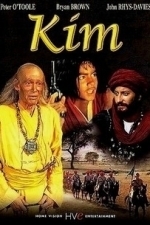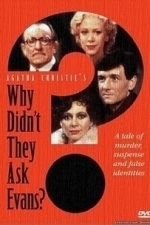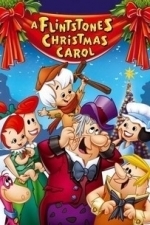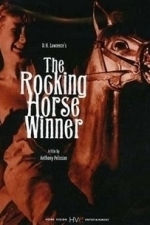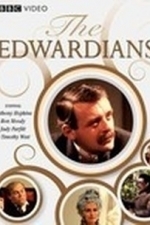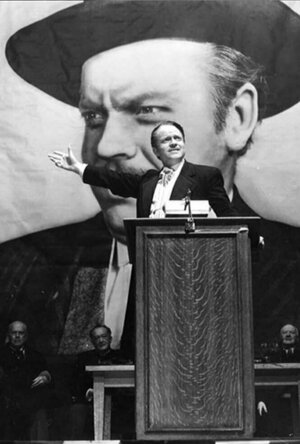Search
Bob Mann (459 KP) rated Mank (2020) in Movies
Dec 10, 2020
Cinematography - glorious to look at (1 more)
A fabulous ensemble cast, with Oldham, Seyfried, Arliss and Dance excelling
"Mank" is a biopic slice of the career of Herman Jacob Mankiewicz (Gary Oldman), the Hollywood screenwriter who was the pen behind what is regularly voted by critics as being the greatest movie of all time - "Citizen Kane". "Citizen Kane" was written in 1940 (and released the following year) and much of the action in "Mank" takes place in a retreat in the Mojave desert when Mank, crippled by a full-cast on the leg, has been 'sent' by Orson Welles (Tom Burke) to complete the screenplay without alcohol and other worldly distractions. Helping administer to his writing and care needs are English typist Rita Alexander (Lily Collins) and carer Fraulein Freda (Monika Gossmann). However, although Mank produces brilliant stuff, his speed of progress exasperates his 'minder' and editor John Houseman (Sam Troughton). (Yes, THAT John Houseman, the actor.)
In developing the story, we continuously flash-back six years - - nicely indicated by typed 'script notes' - - to 1934 where Mank is working at MGM studios for Louis B. Mayer (Arliss Howard) and mixing in the circles of millionaire publisher William Randolph Hearst (Charles Dance) and his glamorous young wife, actress Marion Davies (Amanda Seyfried). Allegedly, the "Citizen Kane" script was based on Hearst. But what souring of the relationship could have led to such a stinging betrayal during those six years?
Mank has an embarrassment of acting riches. Mankiewicz is a fascinating character: charismatic, reckless, passionate and the definition of a loose cannon. Basically, a dream for a great actor to portray. And Gary Oldham IS a great actor. After doing Churchill in "Darkest Hour", he here turns in a magnificent performance as the alcoholic writer. Never more so than in a furious tirade at a dinner table late in the film, which will likely be the equivalent to the Churchill "tiger" speech come Oscar time. Surely, there's a Best Actor nomination there?
Equally impressive though are some of the supporting cast.
- Tom Burke - so good as TV's "Strike" - gives a fine impersonation of the great Orson Welles: full of confidence and swagger. It's only a cameo role, but he genuinely 'feels' like the young Welles.
- Amanda Seyfried: It took me almost half of the film to recognize her as Marion Davies, and her performance is pitch perfect - the best of her career in my view, and again Oscar-worthy.
- Arliss Howard for me almost steals the show as the megalomaniac Mayer: his introduction to Mank's brother Joe (Tom Pelphrey) has a memorable "walk with me" walkthrough of the studio with Mayer preaching on the real meaning of MGM and the movies in general. Breathtakingly good.
- But - I said "nearly steals the show".... the guy who made off with it in a swag-bag for me was our own Charles Dance as Hearst. Quietly impressive throughout, he just completely nails it with his "organ-grinder's monkey" speech towards the end of the movie. Probably my favourite monologue of 2020. Chilling. I'd really like to see Dance get a Supporting Actor nomination for this.
The screenplay was originally written by director David Fincher's late father Jack. Jack Fincher died in 2002, and this project has literally been decades in the planning. Mankiewicz has a caustic turn of phrase, and there are laugh-out lines of dialogue scattered throughout the script. "Write hard, aim low" implores Houseman at one point. And my personal favourite: Mank's puncturing of the irony that the Screen Writers Guild has been formed without an apostrophe! A huge LOL!
Aside from the witty dialogue, the script has a nuance to the storytelling that continually surprises. A revelation from Freda about Mank's philanthropic tendencies brings you up short in your face-value impression of his character. And the drivers that engineer the rift between Mankiewicz and Hearst - based around the story of the (fictional) director Shelly Metcalf (Jamie McShane) - are not slapped in your face, but elegantly slipped into your subconscious.
In addition, certain aspects are frustratingly withheld from you. Mank's long-suffering wife (a definition of the phrase) Sara (Tuppence Middleton) only occasionally comes into focus. The only reference to his kids are a crash in the background as they "remodel" the family home. Is the charismatic Mank a faithful husband or a philanderer? Is the relationship with Rita Alexander just professional and platonic (you assume so), or is there more going on? There's a tension there in the storytelling that never quite gets resolved: and that's a good thing.
Mank also has an embarrassment of technical riches. Even from the opening titles, you get the impression that this is a work of genius. All in black and white, and with the appearance of 40's titling, they scroll majestically in the sky and then - after "Charles Dance" - effortlessly scroll down to the desert highway. It's evidence of an attention to detail perhaps forced by lockdown. ("MUM - I'm bored". "Go up to your room and do some more work on that movie then".)
It's deliciously modern, yet retro. I love the fact that the cross-reel "circle" cue-marks appear so prominently... the indicators that the projectionist needs to spin up the next reel. I think they are still used in most modern films, but not as noticeably as in the old films... and this one!
A key contributor to the movie is cinematographer Erik Messerschmidt. Everything looks just BEAUTIFUL, and it is now a big regret that I didn't go to watch this on the big screen after all. Surely there will be a cinematography Oscar nomination for this one. Unbelievably, this is Messerschmidt's debut feature as director of cinematography!
Elsewhere, you can imagine multiple other technical Oscar noms. The tight and effective editing is by Kirk Baxter. And the combination of the glorious production design (Donald Graham Burt) and the costume design (Trish Summerville) make the movie emanate the same nostalgia for Hollywood as did last year's "Once Upon a Time... In Hollywood".... albeit set forty years earlier. Even the music (by the regular team of Trent Reznor and Atticus Ross) might get nominated, since I had to go back and check that it actually HAD music at all: it's subtly unobtrusive and effective.
The only area I had any issue with here was the sound mixing, since I had trouble picking up some of the dialogue.
Although I can gush about this movie as a technical work of art, I'm going to hold off a 10* review on this one. For one reason only. I just didn't feel 100% engaged with the story (at least with a first watch). The illustrious Mrs Movie Man summed it up with the phrase "I just didn't care enough what happened to any of the characters". I think though that this one is sufficiently subtle and cerebral that it deserves another watch.
Will it win Oscars. Yes, for sure. Hell, I would like to put a bet on that "Mank" will top the list of the "most nominations" when they are announced. (Hollywood likes nothing more than a navel-gazing look at its history of course). And an obvious nomination here will be David Fincher for Best Director. But, for me, this falls into a similar bucket as that other black and white multi-Oscar winner of two year's ago "Roma". It's glorious to look at; brilliantly directed; but not a movie I would choose to readily reach for to repeatedly watch again.
(For the full graphical review, please check out the review here - https://bob-the-movie-man.com/2020/12/10/mank-divines-for-oscar-gold-in-a-sea-of-pyrites/. Thanks.)
In developing the story, we continuously flash-back six years - - nicely indicated by typed 'script notes' - - to 1934 where Mank is working at MGM studios for Louis B. Mayer (Arliss Howard) and mixing in the circles of millionaire publisher William Randolph Hearst (Charles Dance) and his glamorous young wife, actress Marion Davies (Amanda Seyfried). Allegedly, the "Citizen Kane" script was based on Hearst. But what souring of the relationship could have led to such a stinging betrayal during those six years?
Mank has an embarrassment of acting riches. Mankiewicz is a fascinating character: charismatic, reckless, passionate and the definition of a loose cannon. Basically, a dream for a great actor to portray. And Gary Oldham IS a great actor. After doing Churchill in "Darkest Hour", he here turns in a magnificent performance as the alcoholic writer. Never more so than in a furious tirade at a dinner table late in the film, which will likely be the equivalent to the Churchill "tiger" speech come Oscar time. Surely, there's a Best Actor nomination there?
Equally impressive though are some of the supporting cast.
- Tom Burke - so good as TV's "Strike" - gives a fine impersonation of the great Orson Welles: full of confidence and swagger. It's only a cameo role, but he genuinely 'feels' like the young Welles.
- Amanda Seyfried: It took me almost half of the film to recognize her as Marion Davies, and her performance is pitch perfect - the best of her career in my view, and again Oscar-worthy.
- Arliss Howard for me almost steals the show as the megalomaniac Mayer: his introduction to Mank's brother Joe (Tom Pelphrey) has a memorable "walk with me" walkthrough of the studio with Mayer preaching on the real meaning of MGM and the movies in general. Breathtakingly good.
- But - I said "nearly steals the show".... the guy who made off with it in a swag-bag for me was our own Charles Dance as Hearst. Quietly impressive throughout, he just completely nails it with his "organ-grinder's monkey" speech towards the end of the movie. Probably my favourite monologue of 2020. Chilling. I'd really like to see Dance get a Supporting Actor nomination for this.
The screenplay was originally written by director David Fincher's late father Jack. Jack Fincher died in 2002, and this project has literally been decades in the planning. Mankiewicz has a caustic turn of phrase, and there are laugh-out lines of dialogue scattered throughout the script. "Write hard, aim low" implores Houseman at one point. And my personal favourite: Mank's puncturing of the irony that the Screen Writers Guild has been formed without an apostrophe! A huge LOL!
Aside from the witty dialogue, the script has a nuance to the storytelling that continually surprises. A revelation from Freda about Mank's philanthropic tendencies brings you up short in your face-value impression of his character. And the drivers that engineer the rift between Mankiewicz and Hearst - based around the story of the (fictional) director Shelly Metcalf (Jamie McShane) - are not slapped in your face, but elegantly slipped into your subconscious.
In addition, certain aspects are frustratingly withheld from you. Mank's long-suffering wife (a definition of the phrase) Sara (Tuppence Middleton) only occasionally comes into focus. The only reference to his kids are a crash in the background as they "remodel" the family home. Is the charismatic Mank a faithful husband or a philanderer? Is the relationship with Rita Alexander just professional and platonic (you assume so), or is there more going on? There's a tension there in the storytelling that never quite gets resolved: and that's a good thing.
Mank also has an embarrassment of technical riches. Even from the opening titles, you get the impression that this is a work of genius. All in black and white, and with the appearance of 40's titling, they scroll majestically in the sky and then - after "Charles Dance" - effortlessly scroll down to the desert highway. It's evidence of an attention to detail perhaps forced by lockdown. ("MUM - I'm bored". "Go up to your room and do some more work on that movie then".)
It's deliciously modern, yet retro. I love the fact that the cross-reel "circle" cue-marks appear so prominently... the indicators that the projectionist needs to spin up the next reel. I think they are still used in most modern films, but not as noticeably as in the old films... and this one!
A key contributor to the movie is cinematographer Erik Messerschmidt. Everything looks just BEAUTIFUL, and it is now a big regret that I didn't go to watch this on the big screen after all. Surely there will be a cinematography Oscar nomination for this one. Unbelievably, this is Messerschmidt's debut feature as director of cinematography!
Elsewhere, you can imagine multiple other technical Oscar noms. The tight and effective editing is by Kirk Baxter. And the combination of the glorious production design (Donald Graham Burt) and the costume design (Trish Summerville) make the movie emanate the same nostalgia for Hollywood as did last year's "Once Upon a Time... In Hollywood".... albeit set forty years earlier. Even the music (by the regular team of Trent Reznor and Atticus Ross) might get nominated, since I had to go back and check that it actually HAD music at all: it's subtly unobtrusive and effective.
The only area I had any issue with here was the sound mixing, since I had trouble picking up some of the dialogue.
Although I can gush about this movie as a technical work of art, I'm going to hold off a 10* review on this one. For one reason only. I just didn't feel 100% engaged with the story (at least with a first watch). The illustrious Mrs Movie Man summed it up with the phrase "I just didn't care enough what happened to any of the characters". I think though that this one is sufficiently subtle and cerebral that it deserves another watch.
Will it win Oscars. Yes, for sure. Hell, I would like to put a bet on that "Mank" will top the list of the "most nominations" when they are announced. (Hollywood likes nothing more than a navel-gazing look at its history of course). And an obvious nomination here will be David Fincher for Best Director. But, for me, this falls into a similar bucket as that other black and white multi-Oscar winner of two year's ago "Roma". It's glorious to look at; brilliantly directed; but not a movie I would choose to readily reach for to repeatedly watch again.
(For the full graphical review, please check out the review here - https://bob-the-movie-man.com/2020/12/10/mank-divines-for-oscar-gold-in-a-sea-of-pyrites/. Thanks.)
